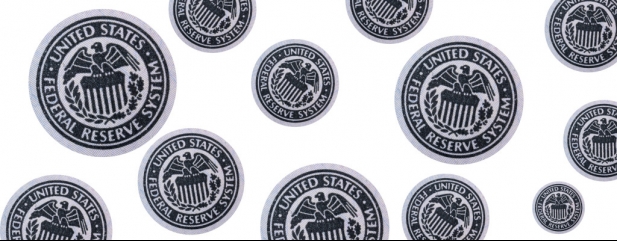Archived article
Please note that tax, investment, pension and ISA rules can change and the information and any views contained in this article may now be inaccurate.
Potential shift by US central bank could be bad for stocks

Investors should watch the US Federal Reserve very closely as the central bank is showing signs of a shift in thinking. This could have major implications for the direction of stocks.
The US economy grew at an annual rate of 6.4% in the first quarter of 2021, the second fastest since 2003 while initial jobless claims dropped to a post-pandemic low in the period.
Even so, the US Federal Reserve, which sets monetary policy, has vowed to keep interest rates close to zero until it sees clear evidence of sustained growth and the jobs lost during the pandemic regained.
The Fed interprets increasing inflation as a temporary phenomenon caused by the base effect from last year’s lockdowns and supply chain disruptions. That was the consensus view until the 19 May release of minutes from April’s policy making committee meeting.
It now seems a greater number of committee members are beginning to think about slowing the pace of asset purchases which have been running at $120 billion a month since June 2020.
The asset purchase programme is designed to support the economy and smooth the path back to growth after the pandemic.
Historically, reducing asset purchases, which is called ‘tapering’, has had a big impact on financial markets, creating heightened volatility in so-called ‘taper tantrums’. In 2013 when Fed chairman Ben Bernanke attempted to taper asset purchases, markets panicked, and bond yields spiked higher.
The risk to the Fed’s policy of waiting for more evidence is that the markets perceive the central bank to be behind the inflation curve which could lead to an even bigger shock when it eventually changes policy.
Judging by the Bank of America’s latest fund manager survey, investors are already ahead of the central bank with around two thirds of respondents saying they expect global inflation and growth to remain above trend. More than a third of fund managers think inflation is now the biggest threat to the global economy.
Lawrence Summers, former US Treasury Secretary and Harvard University economist, has criticised the Fed for creating a ‘dangerous complacency’ in financial markets and misreading the economy.
Even the Federal Reserve’s own Financial Stability Report warned (7 May) that ‘asset prices may be vulnerable to significant declines should risk appetite fall’. It noted ‘a number of nonprice measures suggest that investor appetite for equity risk is elevated relative to history’.
For example, it highlighted the pace of new companies listing on the stock market was at its highest since the late 1990s.
The increasing probability of inflation shocks and elevated risk-taking suggests investors should heed Warren Buffett’s advice to be fearful when others are greedy.

Important information:
These articles are provided by Shares magazine which is published by AJ Bell Media, a part of AJ Bell. Shares is not written by AJ Bell.
Shares is provided for your general information and use and is not a personal recommendation to invest. It is not intended to be relied upon by you in making or not making any investment decisions. The investments referred to in these articles will not be suitable for all investors. If in doubt please seek appropriate independent financial advice.
Investors acting on the information in these articles do so at their own risk and AJ Bell Media and its staff do not accept liability for losses suffered by investors as a result of their investment decisions.
Issue contents
Editor's View
Feature
Great Ideas
- It could be takeover time again for Premier Foods
- Why it is not too late to profit from the SDI growth story
- Gamma Communications to hit top of range forecasts in 2021
- Walmart delivers with upgrade to forecasts as it gains market share
- Ford accelerates electrification drive with new battery plant and latest F-150 truck
- Supreme is a super-charged growth and income play
 magazine
magazine








